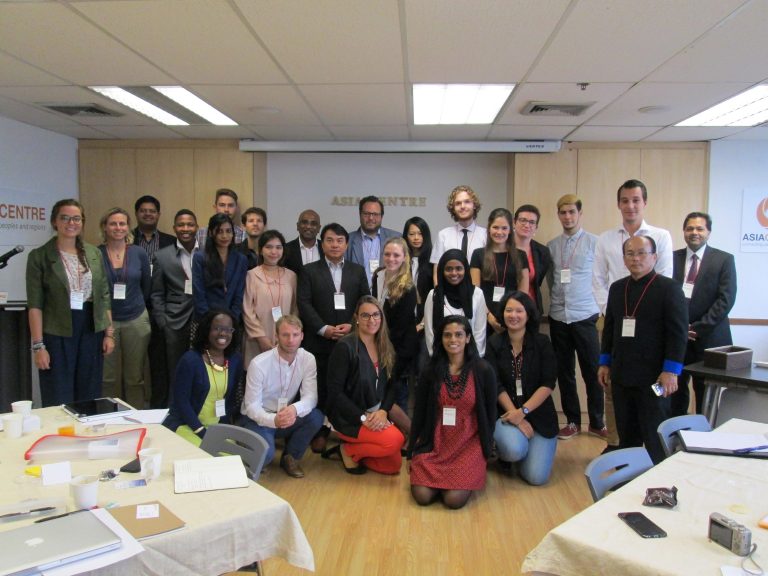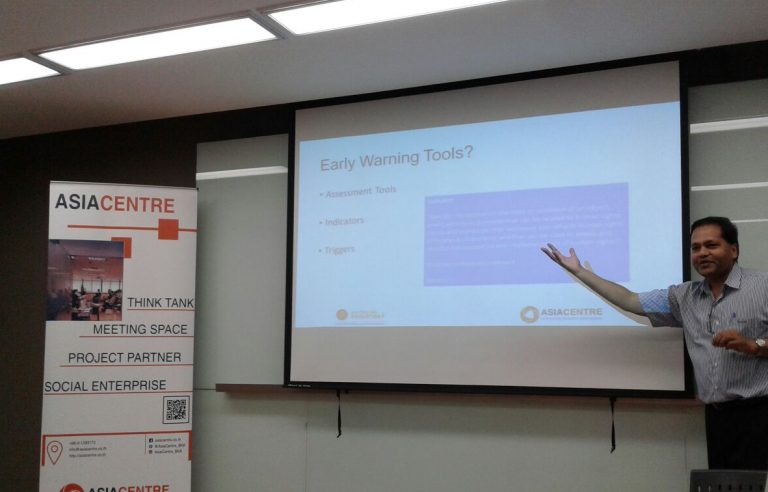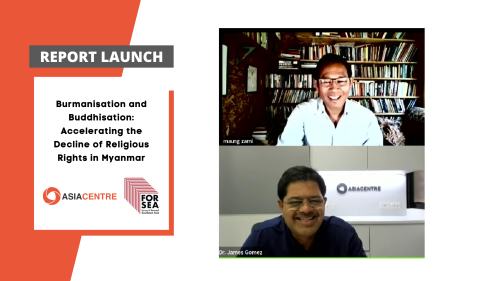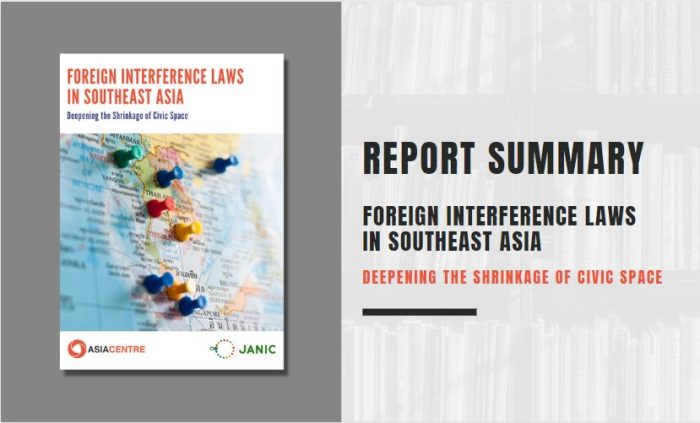
Foreign Interference Laws (FILs) have a legitimate use in safeguarding democracy. Authoritarian regimes, however, tend to abuse FILs and employ the rhetoric of ‘foreign interference’ to shrink civic space, control ideas and perpetuate regimes’ status quo. This is the case for Southeast Asia. The threat of international actors calling out Southeast Asian countries’ democratic and human rights lapses by supporting the work of national CSOs is leading to the introduction of FILs to counteract such efforts.

In light of this, Asia Centre, in collaboration with Japan NGO Center for International Cooperation (JANIC), released Foreign Interference Laws in Southeast Asia: Deepening the Shrinkage of Civic Space. The report reviews developments in laws in Southeast Asia that seek to curb the role of international actors and their support for CSOs that work on democracy and human rights issues.
FILs are emerging in Southeast Asia as part of a larger move among authoritarian countries to curb the activities of civil society working on democracy and human rights. Chapter 1 ‘Introduction’ of the report examines the rhetoric of ‘foreign interference’ and the global emergence of FILs and characteristics of FILs that are increasingly common in authoritarian countries.
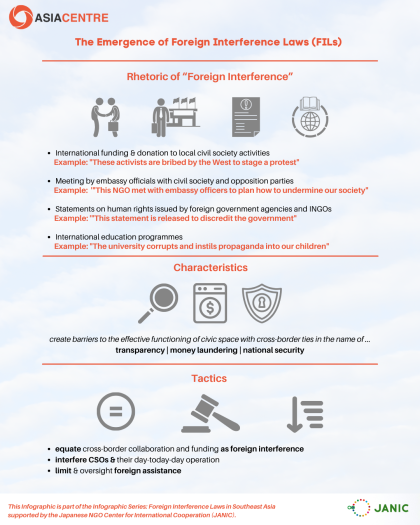
Several authoritarian countries in Southeast Asia already have in place laws that restrict the operation of CSOs that work on issues related to democracy and human rights. However, none of these laws explicitly makes most use of the rhetoric of ‘foreign interference’ like Singapore’s Foreign Interference (Countermeasures) Act 2021. Chapter 2 ‘Foreign Interference Laws in Southeast Asia’ argues that the Act provides a blueprint for Non-Interference Laws that authoritarian regimes in the region are developing. It reviews the existing NGO laws and the ongoing legal developments of FILs in the region.

The abuse of the foreign interference provisions and laws have impacted cross-border collaboration and partnership. The impacts are reviewed in Chapter 3 ‘Impact on Cross-border Collaboration and Partnerships.’ They include: shutting down INGOs and NGOs; blocking international funding; engaging in public rebuke of foreign governments, INGOs, CSO and individuals; the shift by international actors to government partnerships; and relocating their offices to other countries and adopting remote working. Overall such measures have led to a shrinking of civic space in Southeast Asia.
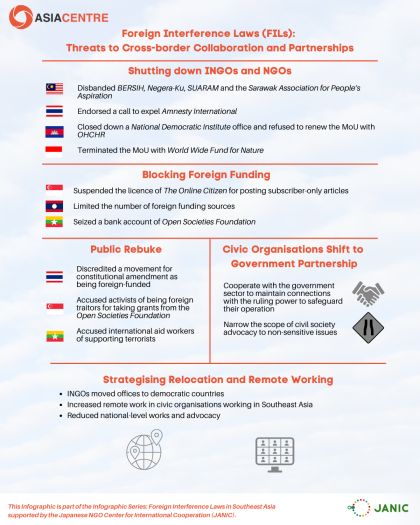
To mitigate such impacts, Chapter 4 ‘Recommendations’ lists a number of recommendations to pre-emptively counter potential damage of these laws on the existence of cross-border collaboration. It suggests that governments should end unsubstantiated and negative rhetoric of ‘foreign interference’, repeal, amend, or clarify FILs. Additionally, UN human rights mechanisms should seek clarity from member states regarding FILs. INGOs and CSOs should call out transgressions of foreign interference laws and strive to become self-sustainable.
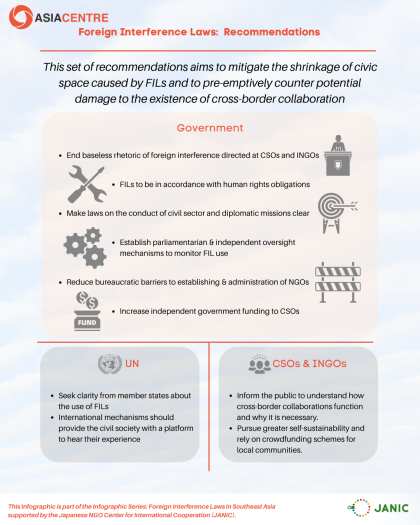
Asia Centre’s report Foreign Interference Laws in Southeast Asia: Deepening the Shrinkage of Civic Space was produced in partnership with the Japanese NGO Center for International Cooperation (JANIC) under the initiative ‘Defending Democracy and Civic Space in Asia’. This project includes partners from across Asia: Asia Centre, Pakistan Development Alliance, Voluntary Action Network India, Centre for Human Rights and Development Mongolia and INHURED International.
To read the full report, click.
For any inquiries regarding the report and collaboration on research, please contact research@asaicentre.org.

